Dermatogyphic features are unaffected by environment and no developmental changes observed except for increased in size and geowth of the ridges with the growth hands. Individual finger and palm prit vary from individual to individual with no exception of even identical twins. Dermatoglyphics offer a reliable means of criminal identification, disputed paternity, association with diseases, population variability, inhertance, sexual dimorphism and twin daignosis. This commemorative volume is edited by Dr. Dipak Kumar Adak and Dr. Anand Murti Mishra to pay homage to their teacher, Dr. Ramesh Chaube (30.07.1943 – 28.11.2014), Retired Professor, Department of Anthropology, Dr. H.S. Gour University, Sagar, Madhya Pradesh. Late Prof.Chaube devoted his life in advancement of research in the field of dermatoglyphic. Among some noteworthy contributions, he developed a research a research methodology for the classidication of palmar creases in the year 1971, which was accepted internationally and till dateit has been in use all over the world. This volume consists of twenty-five chapters contribute by distinguished scientist in the fields of medical science, population biology and anthropolgy. It has three sections. First focused on methodological perspectives of dermatoglyphics, which consists of six articles. Contributed research papers are on assymmerty and diversity in dermatoglyphic traits, inbreeding effects on finger ridge counts, micro-evolutionary trend and classificatory variation in dermatoglyphica, formulation of bracelet creases and incidence of monomorphic finger patterns. The second section consists of five articlea on clinical aspects of dermatoglphics. The authors have reported finger ridge count and ‘atd’ angle in E-B- thalassaemia partients, palmar ridge counts in autistic patients, simian crease and Sydney line in diabetic mellitus patients, dermatoglyphic main line in Turner’s syndrome and palmar flexion creases in mouth cancer patients. Altogether fourteen articles are included in third section. The authors have portrayed different aspects of dermatoglyphic in population level. This include finger and palmer dermatoglyphic aspects of Kayastha, Tai-Phake, Chakma, Rabha, Brahmin, Hira and Muslims of Assam,Apatani, Monpa,Tagins, Shertukpen and Thingbu-pa of Arunachal Pradesh, Kunbi sub-groups and twenty Dhangar castes of Maharashtra, Gahoi Vaishya and Gond of Madhya Pradesh, Oraon and Kissan of Odisha, tribes of south Gujarat and Christan populations of Myson city, Karnataka. We hope, various fields of scientists like the biologists, clinicians, forensic, geneticists, anthropologists and anatomists will find this book interesting, important and very useful.
Recent Trends in Dermatoglyphic Research
Add to favorites
Contents
$90.00
$100.00
In stock
Free & Quick Delivery Worldwide
All orders amounting to US$ 50 or more qualify for Free Delivery Worldwide. For orders less than US$ 50, we offer Standard Delivery at $14 per book.
ABOUT THE AUTHOR Anand Murti Mishra
Dr. Anand Murti Mishra (b. 1973) passed M.Sc. in Anthropolgy (specialization in Physical Anthropolgy) and M.A. in Sociology from Dr.H.S.Gour University. He also passed M.S.W. from Bhoj Open University. Dr. Mishra obtained Ph.D. degree from Dr.H.S.Gour University. He has to his credit three books. Dr. Mishra has published more than 29 papers in National journal. He is Life Member of seven Professional Societies in India. He has conducted extensive field research in the states of Madhya Pradesh and Chhattisgarh. Dr. Mishra is presently attached with SOS in Anthropology and Tribal Studies, Bastar University, Jagdalpur, Chhattisgarh as Assistant Professor.
ABOUT THE AUTHOR Dipak Kumar Adak
Dr. Dipak Kumar Adak (b.1965) passed M.Sc. in Anthropology with spcialization in Physical Anthropology from Dr.H.S.Gour University. He obtained Ph.D. degree from University of Gauhati and M.P.S. degree from International Institute for Populations Sciences, Mumbai. He is the recipient of International Travel Grant award from Indian Council of Medical Research. He is also the recipient og Visiting Scientist award from Indian Statistical Institute, Kolkata. Dr. Adak has published more than 100 research papers in both National and International journals. He has to his credit three edited volumes and one book. He is acting as Reviewer for a number of National and International journals. Presently he is attached to the Anthropological Survey of India, Kolkata as a Research Associate (Physical). Dr. Adak has conducted field research in different States of India. His main research intersts are in the fields of Biological Anthropology and Anthropogical Demography.
reviews
0 in total
Review by Anonymous
Be the first to review “Recent Trends in Dermatoglyphic Research” Cancel reply
You must be logged in to post a review.
Bibliographic information
Title
Recent Trends in Dermatoglyphic Research
Author
Edition
1st. ed.
Publisher
ISBN
9789386223722
Length
324p., Illustrations; 23 Figure; 187 Tables; 24cm.
Subjects
more by Anand Murti Mishra see more
more by Dipak Kumar Adak see more
similar bookssee more
Imagining Multilingual Schools: Languages in Education and Glocalization
This book brings together ...
$22.50
$25.00

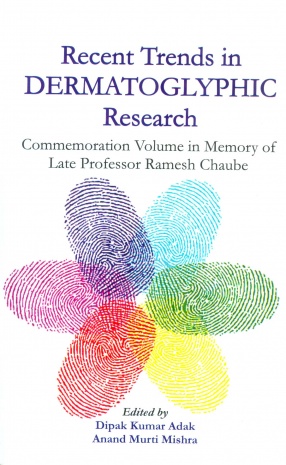
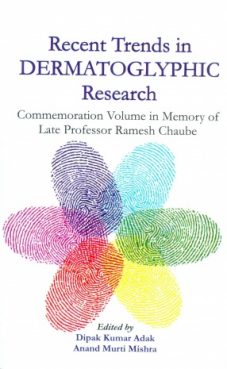
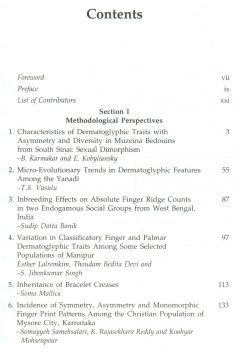
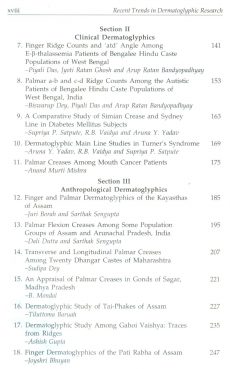
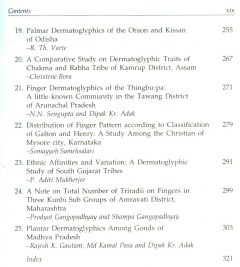
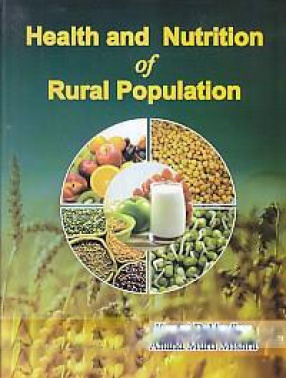
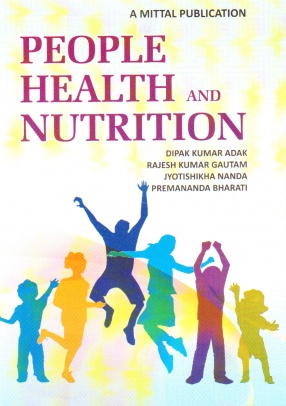
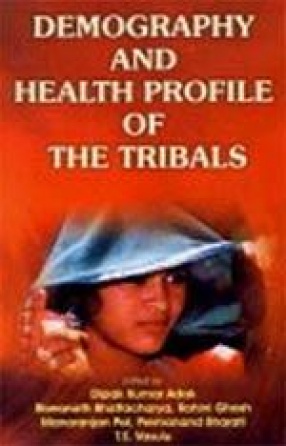
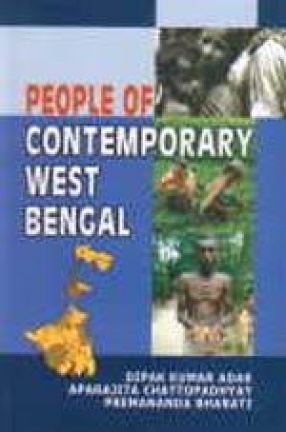
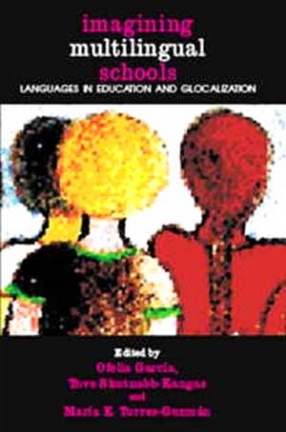
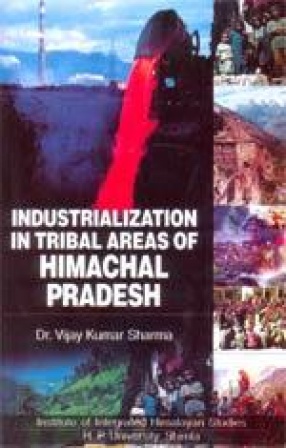
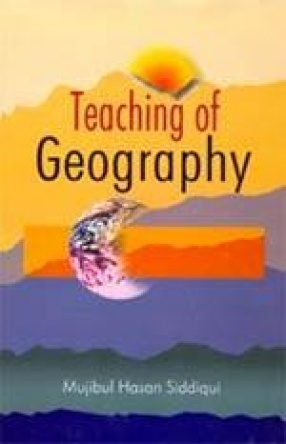
There are no reviews yet.